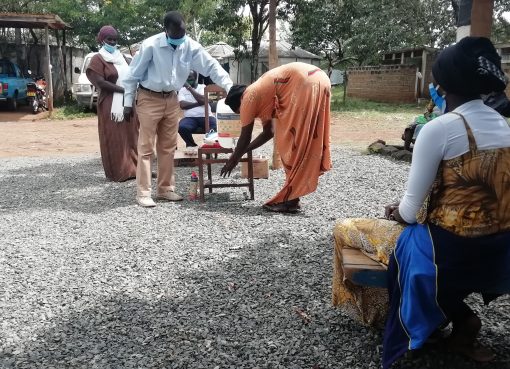Farmers and fishermen who depend on Athi River in Thika East Sub County have complained of the emergence of water hyacinth saying it has affected their livelihoods.
The farmers complained that the weed has suffocated the river making it difficult to pump water to their farms to irrigate their crops.
In the upper parts where the weed is prominent, those who practice horticulture have been forced to quit with their only hope being crops in their farms that have massively failed due to erratic rains.
Speaking on Tuesday to the press in Ngoliba Shopping centre which is most affected by the weed, they said if not eliminated in time the weed would be a major setback to the government’s food security agenda in the area.
The farms along the river banks are well known as the horticulture basket that provides vegetables, fresh cereals and root tubers to local markets of Ol Donyo Sabuk, Ngoliba and sometimes Thika town.
They said the weed acts as a hideout for hippos and crocodiles.
“We stopped doing irrigation after the floating weed submerged the water. Water pumps cannot work in the weed. We also fear hippos and crocodiles may hide in the weeds waiting for unsuspecting members of the public to attack,” said Ambrose Ngige, a youth leader and a farmer.
The fishermen said that sometimes they get stuck in the weed when fishing using their boats.
One of the fishermen, Nicholas Bahati who used to ferry residents across the water using his boat said it has been difficult for them to engage in fishing, and have been forced to quit.
Others who depend on the river water for domestic use complained of heavy pollution subjecting them to waterborne diseases.
The Chairman of the Ol Donyo Sabuk Market, Dr. Joseph Mulinga said residents use the water for domestic consumption thus exposing the community to communicable diseases such as bilharzia and cholera.
A visit at the once scenic Fourteen Falls painted a pale picture of its former self with tourists shying away from the area.
Its water has turned green and the pungent odour emanating from the waters could be sensed a kilometre away. No one could dare touch it to bathe, drink, or cool themselves during hot weather for fear of developing skin rashes.
The residents blame factories from Nairobi and Thika town which emit toxic effluents into the river with the pollution rendering more than 400 residents jobless.
The residents called on the concerned government agencies to undertake a massive cleanup of the river to salvage the population from health and hunger risks.
“Appropriate agencies should act on cleanup exercise of the river. We are putting our people downstream to health risks as they consume heavily polluted water. On water hyacinth, we should also get priority as those living in waters infested by the weed,” said Ngoliba MCA, Joakim Njama.
By Njoki Mbugua/ Muoki Charles




